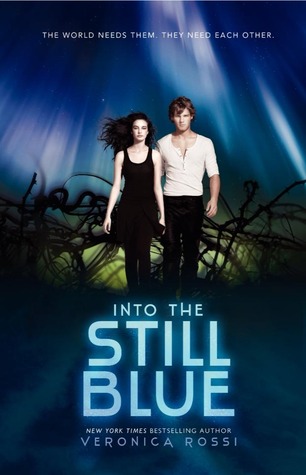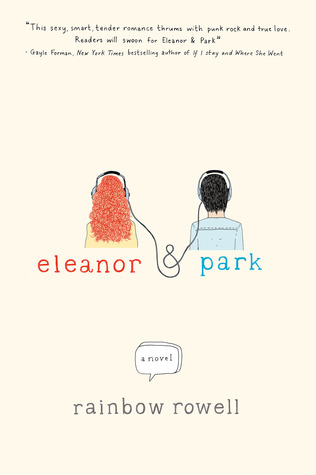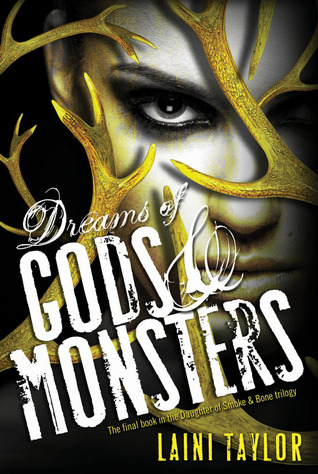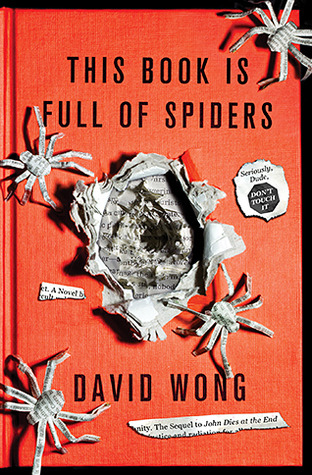Spoilers for the previous two books in the trilogy will follow in this Goodreads description:
"The race to the Still Blue has reached a stalemate. Aria and Perry are determined to find this last safe haven from the Aether storms before Sable and Hess do—and they are just as determined to stay together.
Within the confines of a cave they're using as a makeshift refuge, they struggle to reconcile their people, Dwellers and Outsiders, who are united only in their hatred of their desperate situation. Meanwhile, time is running out to rescue Cinder, who was abducted by Hess and Sable for his unique abilities. Then Roar arrives in a grief-stricken fury, endangering all with his need for revenge.
Out of options, Perry and Aria assemble an unlikely team for an impossible rescue mission. Cinder isn't just the key to unlocking the Still Blue and their only hope for survival--he's also their friend. And in a dying world, the bonds between people are what matter most."
In the third book of the Under the Never Sky trilogy, you get a rescue mission, a new world, an uprising, and a few other YA dystopian tropes that, despite being somewhat cliched, play out well, with suspense, intrigue, and catharsis.
The first portion of this book did drag, and I was concerned that I would be delving into yet another final book in a trilogy that was rushed and could have benefited from tighter plotting and editing. With so much ground to cover and loose threads to address, I felt a lot less time could have been spent in the first caper. Aria and Perr's rescue team, in an attempt to rescue Cinder from Sable's compound, are captured, and then they escape and are re-captured about 4-5 times before they finally escape for good. Building suspense is fine, and a foiled plan A is to be expected, but the seemingly endless failed attempts were unnecessary after a point and I just desperately wanted to move on to the next issue.
Fortunately, for me, the book did pick up after the team plus Cinder return to home base. The story takes a nice breath in the middle of the action to reconnect several of the characters and build some emotional stakes for the reader going into the climax of the conflict. Overall, I was satisfied with the way the conclusion played out. The showdown between Perry and Sable itself was a bit of a letdown for reasons that I might not be able to explain without getting into spoilers, but because the way it ended was inevitable anyway I wasn't disappointed in a way that detracted from the rest.
At the end of my review for Under the Never Sky, I said, "So do I recommend this book? Sure. If you're not already predisposed to give this genre a try, it probably won't change your mind, but even if you're like me and think you're kind of over it, you may find yourself relieved as I was that this wasn't too high of a concept to swallow." I stick by that initial assessment after rounding out the trilogy. If you're a fan of the genre, it's a fun and well-enough-written series with an ending that is thankfully NOT problematic and disappointing, so each of the books are actually worth reading.
"The race to the Still Blue has reached a stalemate. Aria and Perry are determined to find this last safe haven from the Aether storms before Sable and Hess do—and they are just as determined to stay together.
Within the confines of a cave they're using as a makeshift refuge, they struggle to reconcile their people, Dwellers and Outsiders, who are united only in their hatred of their desperate situation. Meanwhile, time is running out to rescue Cinder, who was abducted by Hess and Sable for his unique abilities. Then Roar arrives in a grief-stricken fury, endangering all with his need for revenge.
Out of options, Perry and Aria assemble an unlikely team for an impossible rescue mission. Cinder isn't just the key to unlocking the Still Blue and their only hope for survival--he's also their friend. And in a dying world, the bonds between people are what matter most."
In the third book of the Under the Never Sky trilogy, you get a rescue mission, a new world, an uprising, and a few other YA dystopian tropes that, despite being somewhat cliched, play out well, with suspense, intrigue, and catharsis.
The first portion of this book did drag, and I was concerned that I would be delving into yet another final book in a trilogy that was rushed and could have benefited from tighter plotting and editing. With so much ground to cover and loose threads to address, I felt a lot less time could have been spent in the first caper. Aria and Perr's rescue team, in an attempt to rescue Cinder from Sable's compound, are captured, and then they escape and are re-captured about 4-5 times before they finally escape for good. Building suspense is fine, and a foiled plan A is to be expected, but the seemingly endless failed attempts were unnecessary after a point and I just desperately wanted to move on to the next issue.
Fortunately, for me, the book did pick up after the team plus Cinder return to home base. The story takes a nice breath in the middle of the action to reconnect several of the characters and build some emotional stakes for the reader going into the climax of the conflict. Overall, I was satisfied with the way the conclusion played out. The showdown between Perry and Sable itself was a bit of a letdown for reasons that I might not be able to explain without getting into spoilers, but because the way it ended was inevitable anyway I wasn't disappointed in a way that detracted from the rest.
At the end of my review for Under the Never Sky, I said, "So do I recommend this book? Sure. If you're not already predisposed to give this genre a try, it probably won't change your mind, but even if you're like me and think you're kind of over it, you may find yourself relieved as I was that this wasn't too high of a concept to swallow." I stick by that initial assessment after rounding out the trilogy. If you're a fan of the genre, it's a fun and well-enough-written series with an ending that is thankfully NOT problematic and disappointing, so each of the books are actually worth reading.









